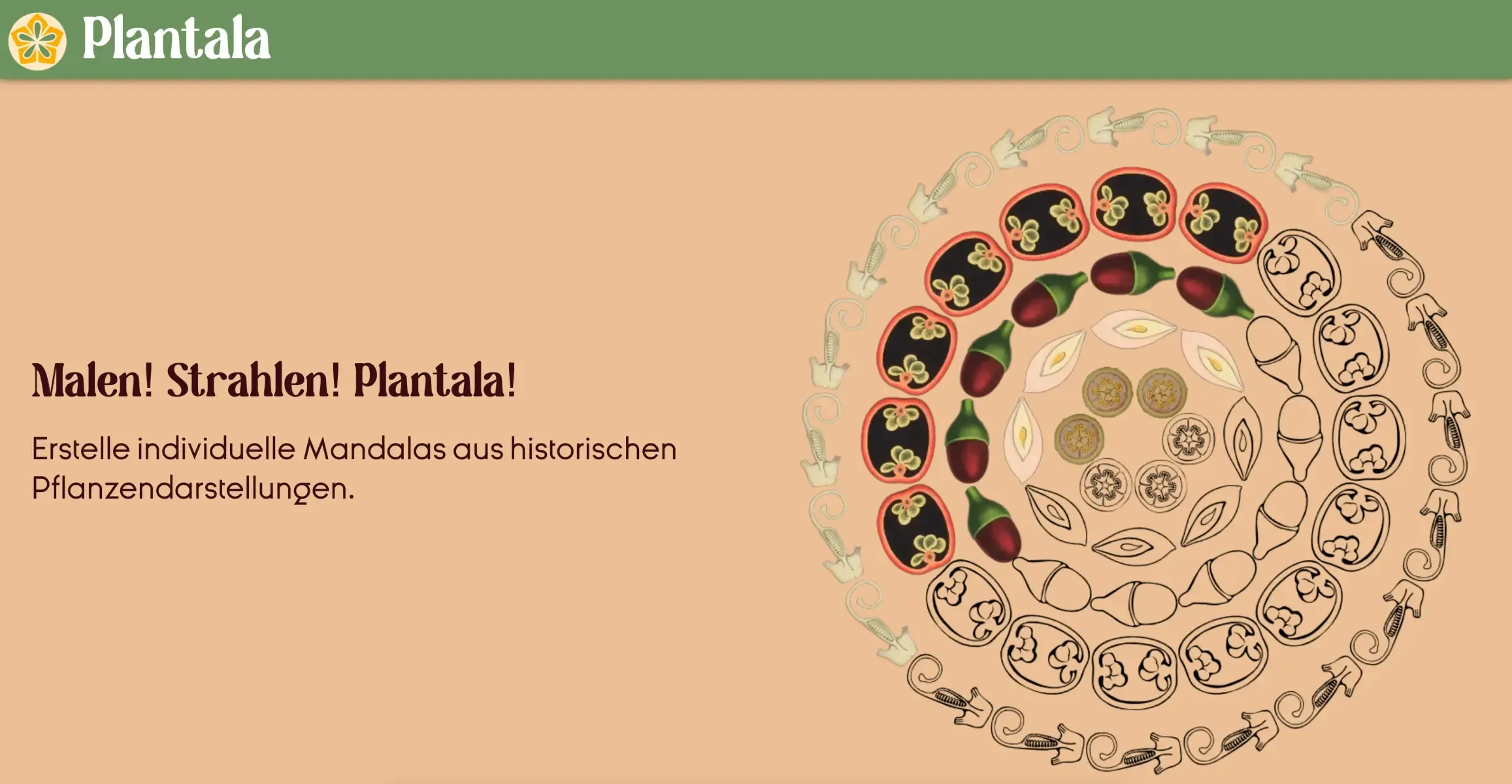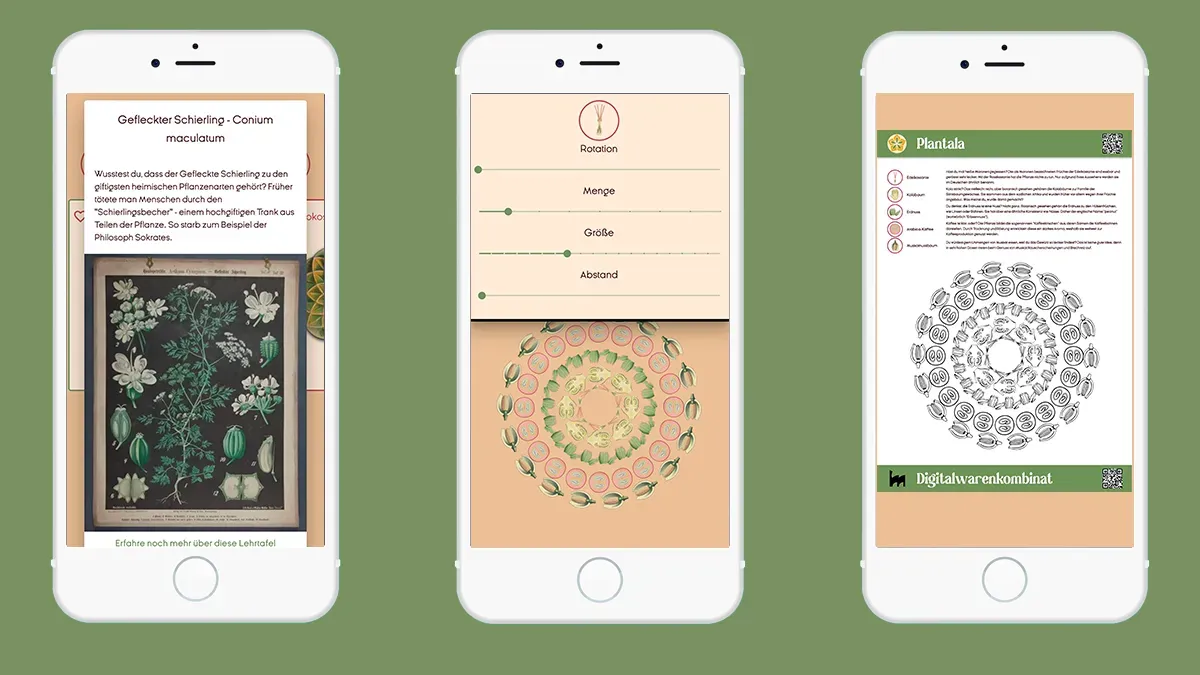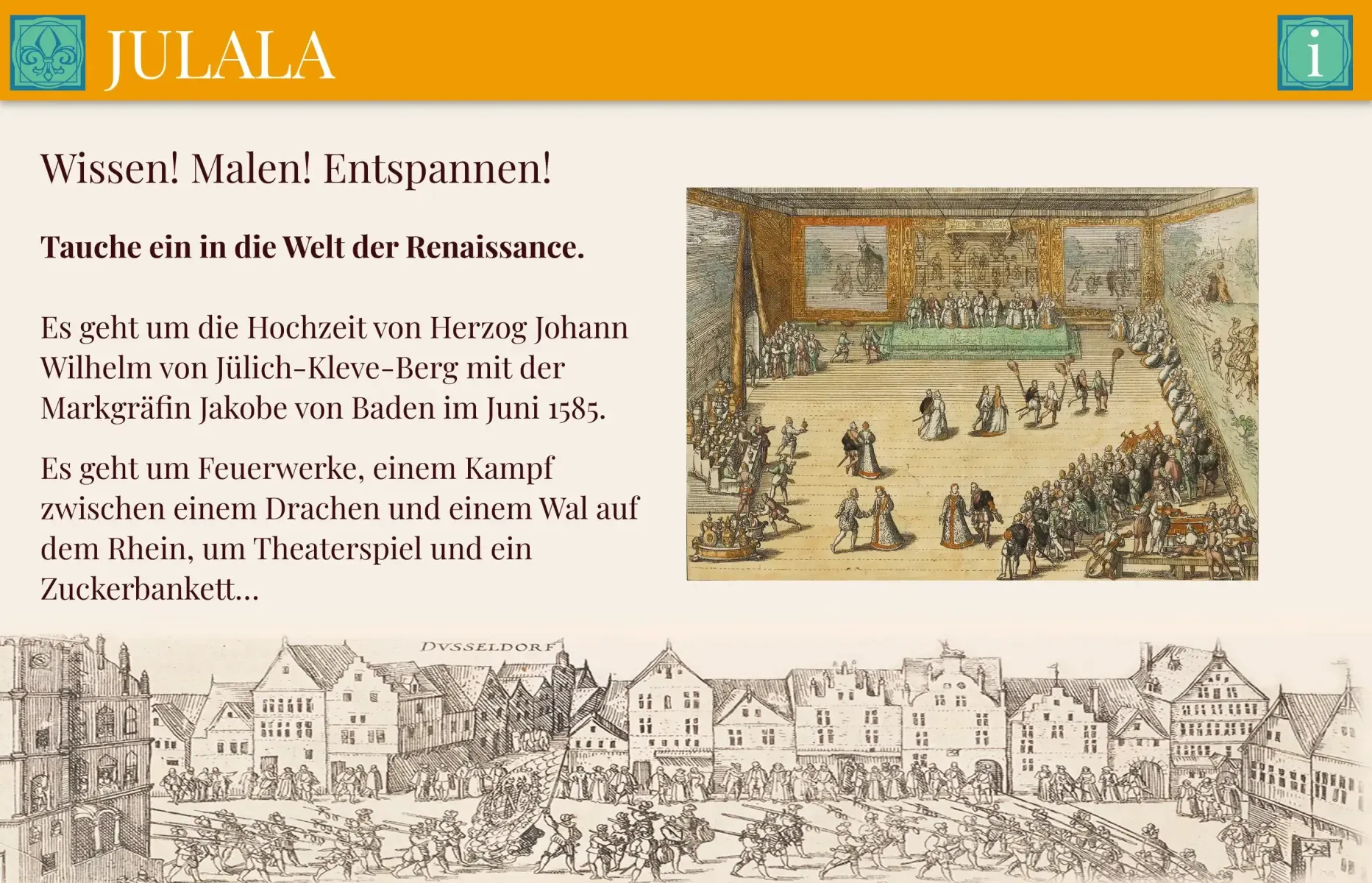Plantala

Plantala is a web application that we used to bring new life to archived and digitized biology teaching panels from the Central Custody of the University of Göttingen. With Plantala, you can create your own mandala from aesthetic plant parts, save it, print it out and then color it in. Along the way, you will also learn something about the special characteristics of the individual plants.
All images and Plantalas created are freely licensed and can be used in a variety of ways, e.g. for teaching, environmental education or simply for private decoration.

Plantala was developed as part of a Coding da Vinci Scholarship 2021.
Click here to go to Plantala. 🔗
The repository you can find on Github. 🔗
Plantala was also refined as part of the Coding da Vinci Nieder.Rhein.Land 2021. The Julala project with pictures of the “Fürstlich Jülich’schen Hochzeit” from the Stadtmuseum Düsseldorf enables the creation of image-rich mandalas, just like the original project.

Click here to go to Julala. 🔗
The repository you can also find on Github. 🔗
Plantala is waiting to be adapted and developed further. As a media station or customized application, it can be filled with any image data set. See also our description of Media Station as a Service (MaaS). 🔗 We will be happy to help you customize it for your purposes.
Please note that Planatala right now is only available in German.